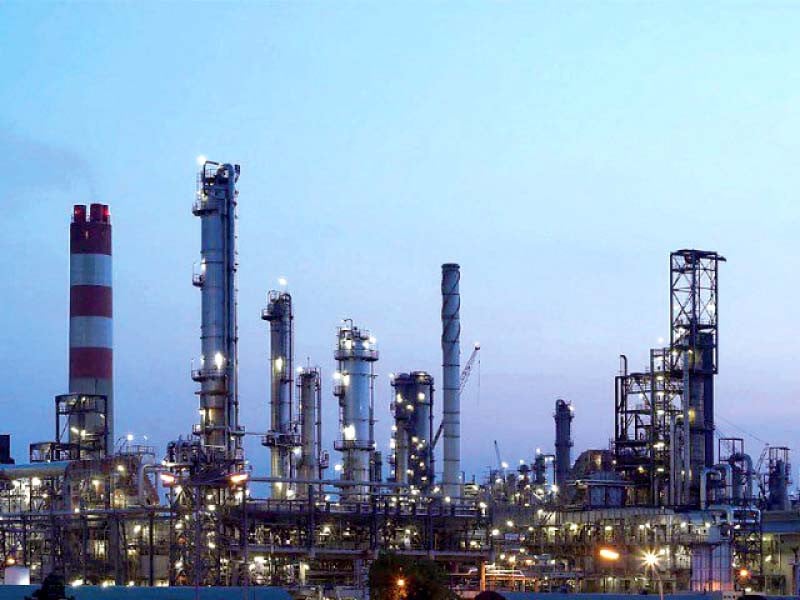Islamabad, March 22: Pakistan’s two major stakeholders in the petroleum sector—the Oil and Gas Regulatory Authority (Ogra) and the country’s five oil refineries—are currently in a dispute, each accusing the other of neglecting their operational and regulatory duties, which has led to foreign exchange losses for the country.
At the heart of the conflict is the low capacity utilization of local refineries, which is partly attributed to the unchecked import of refined petroleum products.
This is despite previous collective decisions made by the oil industry, the regulator, and the government. Interestingly, the law stipulates that no oil import can take place without regulatory clearance from Ogra.
Both the refineries and Ogra accuse each other of failing to implement agreed-upon decisions effectively, with blame being shifted regarding the uptake of local refinery products by oil marketing companies (OMCs).
Ogra has suggested additional agreements between refineries and oil companies to address this issue.
However, refineries argue that such agreements are meaningless unless the regulator upholds its regulatory responsibilities.
Refineries Wrote to Govt
In a letter to Ogra and the government, the chief executives of all five local refineries—Parco, Attock, Cnergyico, National Refinery, and Pakistan Refinery—expressed concern about the insufficient off-take of products, particularly diesel and petrol.
They attributed this to the failure of OMCs to lift the quantities of products they had committed to in the periodic product review meetings led by Ogra. The refineries called on Ogra to intervene and ensure compliance.
Read More: Refineries Urge OGRA to Suspend Diesel and Petrol Imports
However, the refineries took issue with Ogra’s claim regarding the insufficiency of local production before approving imports.
The refineries stated that Ogra’s assertion was “misconceived and misleading.”
They pointed out that, according to Rule 35(g) of the Pakistan Oil (Refining, Blending, Transportation, Storage, and Marketing) Rules 2016, OMCs are required to commit to lifting local products before opting for imports.
Implementation from Ogra & Refineries
This rule forms the basis for granting OMC licenses, and enforcement of this compliance lies with Ogra, which is authorized to take action against any non-compliant OMC under Rule 69 of the same regulations.
The refineries emphasized that allowing imports without properly uplifting local production results in a loss of the country’s precious foreign exchange and contributes to higher consumer prices, specifically due to the inland freight equalization margin (IFEM).
They argued that this undermines Ogra’s regulatory framework and its role in safeguarding the public interest.
Also Read: OGRA Takes Action Against Illegal LPG Businesses Posing Safety Hazards
As outlined in the refineries’ letter, they already have binding contractual or commercial agreements with OMCs for the supply of petroleum products.
The refineries welcomed Ogra’s suggestion to include a take-or-pay clause in refinery-OMC contracts but reiterated that such clauses could only be added if all stakeholders mutually agree, with a clear implementation and monitoring mechanism managed by Ogra.
The refineries stressed that they are “strategic assets” for the country, playing a crucial role in ensuring energy security and contributing to the country’s defense needs.
Imported Fuel Over Reliance
They argued that over-reliance on imported fuels without prioritizing local production could jeopardize Pakistan’s energy supply chain and lead to severe consequences, especially as the country navigates its ongoing financial challenges.
On the other hand, Ogra defended its approach, stating that the standard operating procedures for evaluating local production insufficiency were designed to determine when imports are necessary.
Also Read: OGRA Approves Import of 266,000 Metric Tons of Diesel Amid Rising Local Sales
Ogra clarified that the applicable rules require the determination of “insufficiency in local production” before allowing imports, which it defined as a situation where domestic production cannot meet demand. In contrast, a “deficit” refers to a quantifiable gap or shortfall in supply.
Ogra also pointed out that ensuring product sales and supplies to OMCs is a commercial matter and is not under Ogra’s purview, emphasizing that its role is limited to regulatory functions and enforcing the rules governing the petroleum sector.









